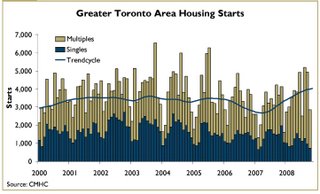Did you know...co-ownership properties can be financed through some mortgage lenders?
The banks are generally not interested in placing mortgages on this type of property; however, some mortgage brokers can assist buyers in arranging a mortgage at competitive rates.
The following general guidelines apply:
- 30% down payment required
- Application fee $250
- Verifiable income
- 32% GDS / 42% TDS
- Extended amortization available (no surcharge)
- Choice of payment frequency
- Prepayment privileges available
If you are considering a co-ownership property purchase, please let me know and I will have my mortgage contact check to see if that particular property is on the lender's approved list of properties.
As usual, please let me know how I can help you!
- Interest Rates
- Power of Sale Properties
- Price Trends
- or Search the MLS and more at my website
Thank you for reading my blog and if there is anything else I can help you with please don't hesitate to contact me,
Mark
A. Mark Argentino
P. Eng. Broker
Specializing in Residential & Investment Real Estate
Thinking of Selling? Best Mortgage Rates Current Home Prices Search MLS
RE/MAX Realty Specialists Inc.
Providing Full-Time Professional Real Estate Services since 1987
( BUS 905-828-3434
›mark@mississauga4sale.com
8 Website : Mississauga4Sale.com
- Thinking of selling in the next 3 to 6 months? Would you like a Complimentary & Quick Over-The-Net Home Evaluation ?
- On-Line Real Estate Newsletter sign up
- See seasonal housing patterns












